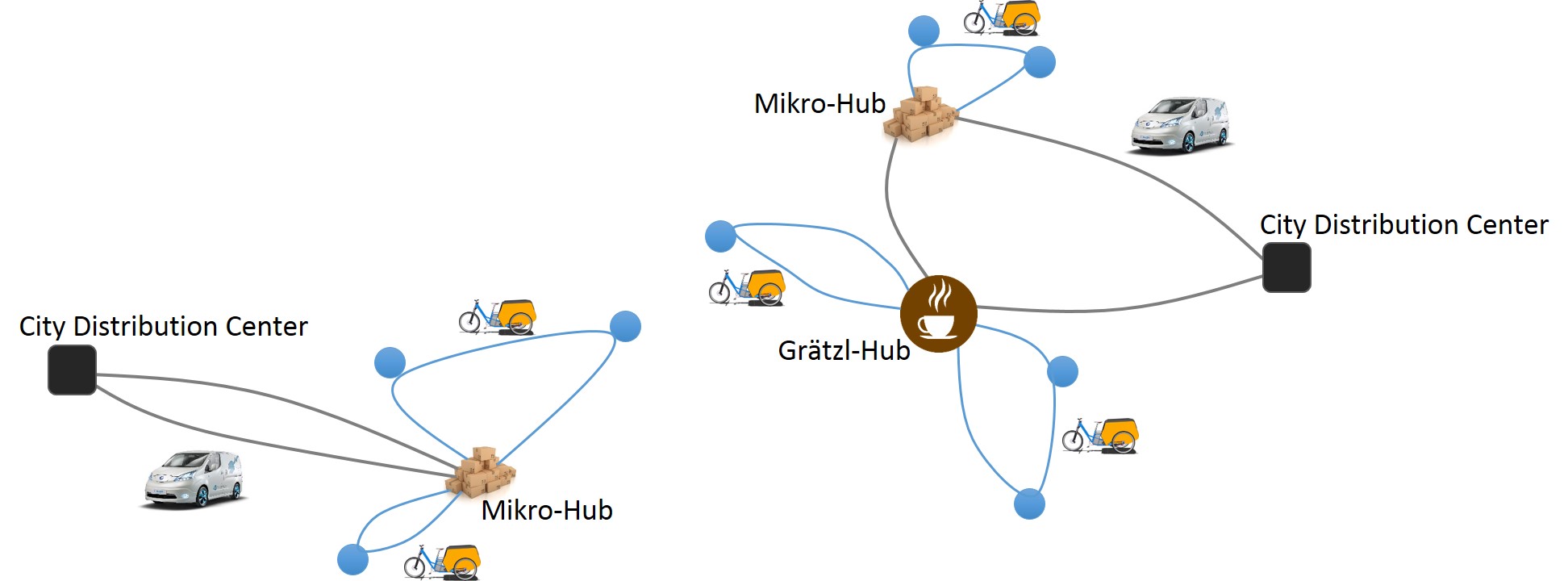Conception of a sustainable, cooperative, two-stage distribution system for small consignments in the city of Vienna
The aim of the R&D project KoopHubs is the development of a city-wide, two-stage logistics concept with Micro- and Grätzl-hubs and City Distribution Centers for the distribution of urban small consignments through cross-industry company cooperations. The justification of logistic structures is done as an instrument of sustainable urban development by enriching the Micro-hubs with additional social functions, which counteracts problems in urban land use and utilization. In the inner-city area, the dynamic use of cargo bikes for the last mile is investigated, complemented with low-emission trucks. In addition, optimised cooperation and operator models for the hubs will be determined and a functional verification at system level with real data will be provided using the example of the City of Vienna.
Researchers at AIT (Center for Mobility Systems) and WU (Research Institute for Supply Chain Management) are concentrating in particular on dynamic-cooperative distribution with cargo bikes based on micro-hubs. A special challenge in the urban logistics of small consignments (e.g. parcels) is the inclusion of dynamic orders and the resulting necessity for the temporal and spatial synchronization of vehicles. Despite the comparatively low loading capacity and range of cargo bikes, these are particularly flexible and can be used promptly in the delivery of dynamic orders. In the practice of bicycle courier services it is common to hand over deliveries "en route" in order to increase distribution efficiency. This dynamic concept is taken up and integrated into the distribution planning at local level for delivery with cargo bikes. Restrictions on customer-oriented delivery (delivery time windows and returns) are also taken into account.
Based on the detailed problem description and modeling, heuristic solution algorithms are developed for the optimization of the last mile with cargo bikes and larger, but less flexible means of transport (such as electric trucks). The generation of practice-relevant solutions within an acceptable runtime is crucial.
The research project KoopHubs (Conception of a sustainable, cooperative, two-stage distribution system for small consignments in the city of Vienna) is funded by the Austrian BMVIT in the 10th call for proposals Mobility of the Future.






